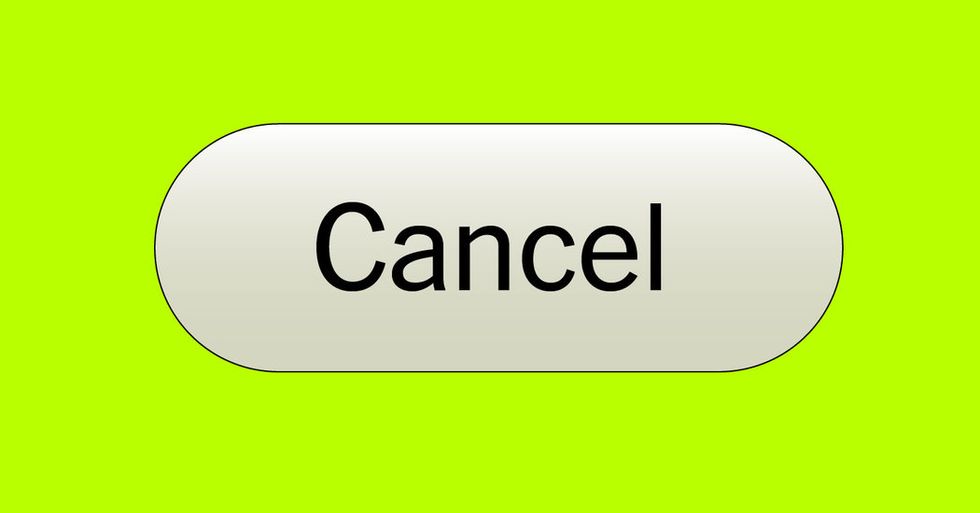CULTURE
Why We Shouldn’t Cancel Cancel Culture: We Need Transformative Justice
22 Jan, 20

Photo by Markus Winkler (Unsplash)
Kanye West is canceled.
James Charles is canceled. Doja Cat is canceled. Harvey Weinstein is canceled. J. K. Rowling is canceled. Dave Chappelle is canceled. Donald Trump and all his supporters are canceled. Camila Cabello is canceled. Boomers are canceled. And now, cancel culture itself has been canceled.
The term “cancel culture” has quickly become one of the most discussed trends of the digital age. America is canceled, murder is canceled, Earth is canceled. If one were to scrape through everything I have ever said and written with a fine-toothed comb, I would probably be canceled, and you likely would be, too. As Jonah Engel Bromwich reported in The New York Times, “Everyone is canceled.” Maybe we should all just go back to sleep.
Though it would be simple enough to rehash the argument that we should just “cancel cancel culture,” cancel culture isn’t disappearing anytime soon. Neither are the systemic forces of oppression and the forces of human nature that created it.
Instead of arguing for a complete end of cancel culture, we should ask if there’s a way to move past cancel culture’s flaws without completely shutting down the deeper meanings and gems of potential buried within the term.
The Case for Canceling Cancel Culture: Twitter, Queer Infighting, and Capitalism
Humans have always been “canceling” each other; it’s a way of shaping and solidifying societal values. But the term “canceled” (as we understand it today) appeared sometime around 2015, when the hashtag # canceled appeared on Black Twitter. Initially, cancel culture was used as a way of leveraging the collectivity inherent in the Internet and the attention economy and using this power to critique people in positions of power. In theory, it is a way of giving voice to the marginalized and the voiceless.
Yet inevitably—perhaps because it originated from a place of brokenness and anger—cancel culture began to twist and bend out of shape. It started coming for the powerless, shutting down discussions that would’ve been beneficial, splintering communities, and stymying learning opportunities.
Of cancel culture in the queer community, Ryan Li Dahlstrom writes, “I’m feeling really tired of the call-out culture on social media especially within the queer/trans people of color communities. We need to center and build relationships with each other…By making these public attacks on each other, we are engaging in the same disposability politics of capitalism and the prison industrial complex that we purport to be against while feeding into state surveillance tactics that are monitoring how we are tearing each other down.”
Cancel culture ultimately idealizes unattainable standards, a fact that led even Barack Obama to critique the trend. “This idea of purity and you’re never compromised and you’re always politically ‘woke’ and all that stuff,” he said. “The world is messy; there are ambiguities… People who do really good stuff have flaws.” He emphasized that cancel culture “is not activism,” which it isn’t. It can provide immediate gratification and can be cathartic—but while writing a poem about how angry you are (usually) doesn’t hurt anyone, cancel culture can have visceral consequences, particularly for people without the resources to bounce back.
It can also lead to burnout on all sides. “One way to heal this emotional drain is to consider what change you’re hoping for. Do you actually want this person to learn and do better, or just to feel bad about what they did?” writes Maisha Z. Johnson.
This isn’t to say we shouldn’t be angry, or that we should all just “get along”; centrism, tolerance, and “politeness” have always been used to breed stagnancy and cover up true harm. But it’s important to remember that cancel culture usually does very little to change the things it was trying to address, like systemic violence, racism, transphobia, and the like. If anything, it can perpetuate unproductive constructs. Critiquing Lana Del Rey for dating a cop might feel satisfactory in the short-term, but we can’t delude ourselves into thinking it will do anything at all about police brutality.
As Jonah Engel Bromwich writes, “Only those whose power is, for the most part, predicated on the attention economy are susceptible to cancellation.” This means that politicians, businessmen, and the people truly in charge of power structures often avoid being canceled while ordinary Internet users become targets, treated as if they single-handedly created massive social issues like racism or capitalism, treated as if they were not broken people with lives and the capacity to change.
Many have noted that cancel culture is a capitalist and carceral practice, one that breeds isolation, competition, and dehumanization. “[Cancel culture] speaks to a lifestyle of commodity, consumerism and capitalism, of transactions being canceled. It’s a very transactional word,” says Jason Richards, the writer of an episode of Joanne the Scammer that featured an early use of the term “canceled.”
According to eminent scholar, preacher, and writer Michael Eric Dyson, cancel culture is literally “the internalization of an ethic of white supremacy, which is wanting to cancel black people from the beginning.” Instead, he says, “We have to stand outside and protest and force people inside of the system to do the right thing.”
In short, cancel culture takes our eyes off of the prize, which is—ideally—a better world.
The Case Against Canceling Cancel Culture: Learning from Aziz Ansari, Lana Del Rey, and Our Mistakes
All that said, it’s tempting to say we should just cancel cancel culture itself. Realistically, though, this won’t happen. Whether you think it’s real or not, cancel culture generates massive amounts of attention and capital, meaning that it’ll continue to be fueled by click-hungry websites and by the parts of us that long for likes, engagement, and revenge.
Plus, the Internet is a natural breeding ground for call-outs. This may be thanks to something the writer Ginger Gorman has called the “online disinhibition effect,” which is when people online say things they’d never dream of uttering in real life. And of course, this world offers no shortage of reasons to be angry.
Ultimately, to cancel cancel culture—and to write off the impulses and anger that motivate it—would be to miss a valuable chance to learn from it.
We can honor the fact that cancelations often stem from places of deep pain and insecurity, often rooted in larger issues, while also understanding that the point-blank nature of cancel culture may be unproductive. For example, many men now live in fear of being accused of sexual misconduct, but women have always lived in constant fear of sexual assault. Instead of shutting down the voices of men who fear sexual assault accusations, we need to invest time and energy into dialogue about how men might avoid assaulting women. We could dive deeper into the root causes of sexual assault, like toxic masculinity and trauma, and focus on healing the wounds that created them.
This doesn’t mean we should excuse abusers, but one of the most positive results of the increased dialogue about sexual abuse is the widespread proliferation of information about what constitutes consent. We should be highlighting the lessons we might learn from people like Aziz Ansari, whose cancelation generated a great deal of vitriol—but also created an opportunity for rich, nuanced discussions.
We should uplift all people who commit to healing and practicing radical love after (or ideally, before) being accused of something, just as we should honor women and people of all genders for their growth, not just their mistakes and traumas. It may be idealistic to think this is possible, but what would the alternative be? Total nihilism? People are always changing, and those who show a clear willingness to listen and learn from their mistakes deserve the space to do so. They should not be cast off into the wilderness or made into pariahs. We shouldn’t rely on the methods of the power structures we’re trying to replace.
Transformative Justice Approaches to Cancel Culture
In New York City, people have been writing the same message all over the subways: “We are not in the business of policing each other.” We should, however, be in the business of remaining open to questions, to change, and to our own complexity.
The process of diving into the root causes of things, embracing complexity, and focusing on the outcomes we wish to see rather than the problems at hand are all part of a practice called transformative justice. This practice originated in the worlds of prison justice and gender-based violence organizing, but it’s a very applicable alternative to cancel culture. Transformative justice “seeks to provide people who experience violence with immediate safety and long-term healing and reparations while holding people who commit violence accountable within and by their communities,” according to usprisonculture.com. It’s about advocating for learning, conversation, and growth instead of silence and ostracization.
Transformative justice is not the same as unconditional forgiveness. It means creating opportunities for repentance, reparations, and ongoing healing for all parties involved. It means channeling our rage into action, organizing, and community-building, not using it to tear others down. In this broken world, maybe the best we can do is learn from our mistakes and help others do the same.
The activist and writer adrienne maree brown makes a passionate, beautiful argument for why we need to replace cancel culture with transformative justice approaches. “Is this what we’re here for? To cultivate a fear-based adherence to reductive common values?” she asks. “What can this lead to in an imperfect world full of sloppy complex humans? Is it possible we will call each other out until there’s no one left beside us?”
If we continue to cancel each other instead of focusing on growth and systemic change, she implies, we’ll merely perpetuate the philosophies that got us into all these messes in the first place. But “if we want to create a world in which conflict and trauma aren’t the center of our collective existence, we have to practice something new, ask different questions, access again our curiosity about each other as a species,” brown writes. “I believe transformative justice could yield deeper trust, resilience and interdependence.”
This approach can be useful for those on every side of a potential cancelation. “What the majority dismisses as so-called hate is usually honest criticism that needs to be addressed,” advises Erin Tatum. “In lieu of justifying your actions, try channeling your energy into understanding the other person’s perspective.” When we are the ones being called out, we can try to practice understanding the complexity of the other person’s perspectives, and we can realize that we aren’t personally being attacked. We might also acknowledge that we might have done something wrong, but this doesn’t mean that we can’t learn and grow. Acknowledging our mistakes and inherent biases is the first step to getting over things like white fragility, and it’s a way to heal deeper wounds instead of trying to stitch them up by opening more.
As brown writes, “All these mass and intimate punishments keep us small and fragile. And right now our movements and the people within them need to be massive and complex and strong.”
- In “8:46,” Dave Chappelle Delivers His Most Powerful Performance – Popdust ›
- Is “Calling In” the Antidote to Cancel Culture? – Popdust ›
- Obama calls out ‘woke’ cancel culture: ‘That’s not activism’ – The … ›
- The Year in Cancel Culture – Reason.com ›
- Youthsplaining: Everything You Need to Know About Cancel Culture … ›
- The “Cancel Culture” Con | The New Republic ›
- Cancel Culture – Urban Dictionary ›
- Cancel Culture Is Not Real—At Least Not in the Way You Think | Time ›
- Why ‘cancel culture’ doesn’t always work – CNN ›
- What is cancel culture? Why we keep fighting about canceling … ›
- Tales From the Teenage Cancel Culture – The New York Times ›
- Call-out culture – Wikipedia ›














